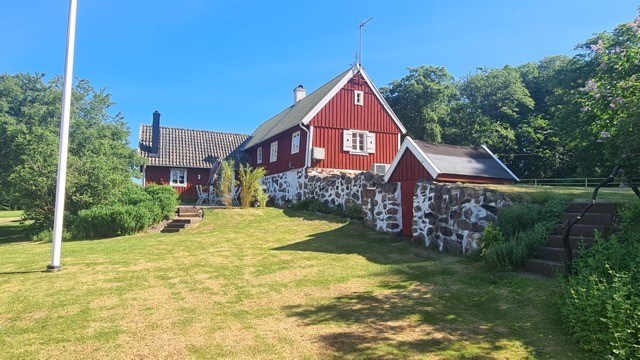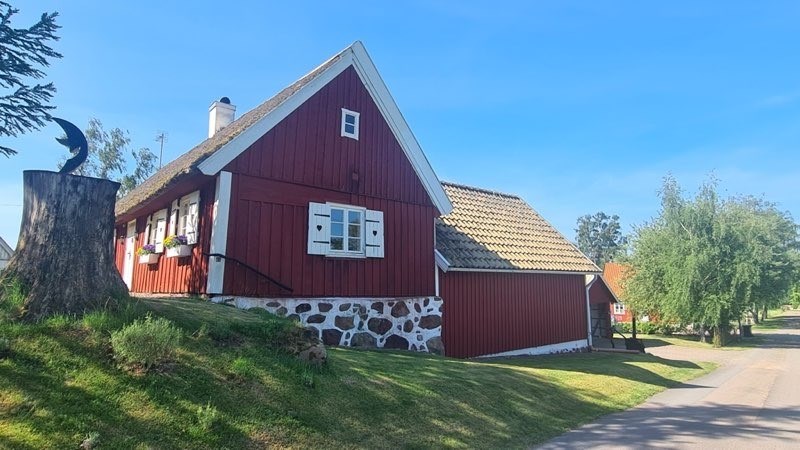Detta inlägg post publicerades ursprungligen på denna sida this site ;
Date:
Author: Michelle Grattan, Professorial Fellow, University of Canberra
Original article: https://theconversation.com/grattan-on-friday-trying-too-hard-for-a-special-tariff-deal-with-trump-could-be-the-wrong-way-to-go-253737
Prime Minister Anthony Albanese and Opposition Leader Peter Dutton both agree Australia should react to US President Donald Trump’s aggressive tariff regime by continuing to seek a special deal. They just disagree about which of them could better handle the challenge of dealing with the rogue president.
Dutton said after Trump’s announcement, “the deal is there to be done”, but insisted Albanese just isn’t up to the task.
At Wednesday’s briefing for the red meat industry, Trade Minister Don Farrell said, “Tomorrow might be the end of the first part of the process but we’ll continue to engage with the Americans to get these tariffs removed, as we did with the Chinese.”
But if there is indeed a deal to be done, at what cost would it come? The price could be higher than any specifics negotiated.
Australia should be careful of going down the route of supplicant – which, let’s be blunt, is what this would involve.
It’s long been clear we can’t predict what Trump might do in his international relationships. His appalling bullying of Ukraine’s President Volodymyr Zelensky; his extraordinary treatment of Canada; his bizarre bid to grab Greenland from NATO ally Denmark – individually, each of these is shocking; collectively, they amount to nearly unimaginable behaviour from a US president.
The risk of trying to cosy up to the Trump administration in seeking exemptions from the 10% general tariff is that, whatever the overt quid pro quo involved, Trump would then see Australia as owing him something if and when he needed it.
A deal could mean Australia would later feel somewhat constrained in calling out egregious Trump actions. Even if it didn’t, the perception could be there.
It’s obvious in retrospect – if it wasn’t all along – that Australia was never going to escape whatever general tariff Trump imposed. At least we are at the bottom of the league table – we’re among the countries minimally hit. As of course we should be, given the Australia-US Free Trade Agreement. As Albanese said, we shouldn’t be targeted at all.
One area for possible future negotiation is the ban, for biosecurity reasons, on US fresh beef coming into Australia. There have already been talks about this. Albanese on Thursday said Australia wouldn’t compromise its biosecurity, but flagged room for some possible movement.
This is double-edged. Beef producers will want an exemption, but anything that could be construed as even a remote threat to our biosecurity would go down badly in sections of the electorate, regardless of guarantees.
Australia is in a solid position to withstand the direct effects of the Trump tariffs. Only about 5% of our exports go to the US.
The effect on the beef trade could be relatively mild. The Americans have a dwindling cattle herd (the lowest since the early 1950s). Australian lean beef is particularly suitable for burgers. And, given the 10% tariff applies to other countries, we won’t be disadvantaged against other suppliers. So the Americans are likely to continue to need Australian beef – they will just have to pay more for it.
Peter Draper, professor of international trade at the University of Adelaide, puts the bilateral situation in perspective. “We rode out China’s trade coercion, and China is a much more important trading partner. These tariffs are much smaller.”
Draper argues that “as a matter of principle, you shouldn’t negotiate with bullies”.
Also, the US is breaking international trade rules that are crucial to uphold, Draper says. Cutting special deals validate the rule-breaker’s actions, he says.
The real, and significant, cost to Australia will be what the tariff regime will do to the international economy. Treasurer Jim Chalmers described “Liberation Day” as “a dark day for the global economy”.
Shiro Armstrong, professor of economics at the Australian National University, says the “main game is stopping the contagion of these tariffs globally and stopping a retreat to a 1930s retaliatory spiral”.
Armstrong believes that when it comes to getting a special deal, Australia’s chances are probably better than those of most countries.
But he warns Australia should be “very careful” of a deal involving critical minerals – something the government had on the table and the opposition has said it would pursue. Armstrong points to Trump’s penchant for using “economic coercion to extract concessions”.
Immediately after the Trump announcement, Albanese had a response ready to go.
This includes financial encouragement for exporters to seek to grow other markets.
Australia is not retaliating with counter-tariffs (a sensible stance in line with its free trade beliefs). But there are some “protection-lite” measures in the Albanese package.
Australian businesses will be put at “the front of the queue” for government procurement and contracts.
This measure is part of the government’s current “Buy Australian” push. A small dose of protectionism, it may mean taxpayers pay more for goods and services.
On another front, Albanese said Australia would establish a “Critical Minerals Strategic Reserve”. Details are to come, but it is expected to be a stockpile for these minerals, which are vital for defence equipment in particular. Perhaps such a move is to assure Australians that if there were an agreement to facilitate US access to critical minerals, the government would have belt-and-braces protection for these vital national assets.
In this first week of the campaign, Dutton has found himself on the barbed wire fence when it comes to Trump. He’s putting himself forward as the better leader to deal with Trump (including fighting him if necessary). He’s also rejecting suggestions he is running on Trump-like policies.
In general, the first week of the campaign has been a hard slog for the opposition leader. He comes across as undercooked and late with his deliveries. We are still waiting for the modelling of his controversial policy for an east coast gas reservation scheme.
In the 2022 election campaign, Albanese had a shocker start. But the Liberals now are in a worse place than Labor was then, and Dutton’s campaign needs a significant lift. The question is whether he has the capacity to give it that.
![]()
Michelle Grattan does not work for, consult, own shares in or receive funding from any company or organisation that would benefit from this article, and has disclosed no relevant affiliations beyond their academic appointment.

